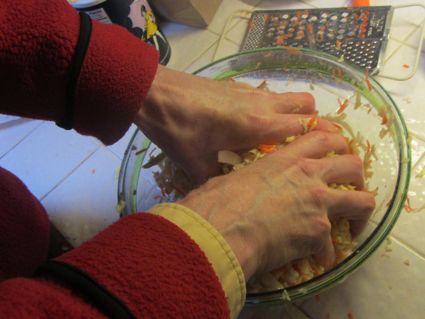Wayne LaPierre, chief executive officer of the National Rifle Association, offered an interesting statement yesterday in response to the mass murders at the Sandy Hook Elementary School in Newtown, Connecticut, a statement that reveals a coherent moral outlook. According to a report in the New York Times, LaPierre said, “The only thing that stops a bad guy with a gun is a good guy with a gun.” He therefore proposed providing armed security guards in every school in the United States. The report goes on to quote LaPierre as saying
Now I can imagine the headlines — the shocking headlines you’ll print tomorrow…. More guns, you’ll claim, are the NRA’s answer to everything. Your implication will be that guns are evil and have no place in society, much less in our schools. But since when did the gun automatically become a bad word?
This is only a partial exposition of this particular moral outlook. Zane Grey, popular author of Western novels, gave a somewhat more complete exposition of this morla outlook in his 1912 novel Riders of the Purple Sage. Towards the end of the chapter titled “Faith and Unfaith,” the gunman Lassiter is explaining to the heroine Jane Withersteen why he must keep his guns:
“Blind — yes, an’ let me make it clear an’ simple to you,” Lassiter went on, his voice losing its tone of anger. “Take, for instance, that idea of yours last night when you wanted my guns. It was good an’ beautiful, an’ showed your heart — but — why, Jane, it was crazy. Mind I’m assumin’ that life to me is as sweet as to any other man. An’ to preserve that life is each man’s first an’ closest thought. Where would any man be on this border without guns? Where, especially, would Lassiter be? Well, I’d be under the sage with thousands of other men now livin’ an’ sure better men than me. Gun-packin’ in the West since the Civil War has growed into a kind of moral law. An’ out here on this border it’s the difference between a man an’ somethin’ not a man. Look what your takin’ Venters’s guns from him all but made him! Why, your churchmen carry guns. Tull has killed a man an’ drawed on others. Your Bishop has shot a half dozen men, an’ it wasn’t through prayers of his that they recovered. An’ to-day he’d have shot me if he’d been quick enough on the draw. Could I walk or ride down into Cottonwoods without my guns? This is a wild time, Jane Withersteen, this year of our Lord eighteen seventy- one.”
For the character Lassiter, to be a man (not “to be human,” but to be a man) means being able to protect yourself, and implicitly to be able to protect women and children. According to Lassiter’s character, the Civil War caused a kind of moral vacuum — the Civil War meant the destruction of a way of life, the triumph of Northern industrial might over the South’s emphasis on honor and duty. Even “churchmen” carry guns, and kill people, denying that Christianity can offer an alternative moral outlook that effectively competes with the moral outlook that requires a man to carry guns.
Packing a gun continues to be a “kind of moral law” in the United States today. I find it hard to name another moral law in U.S. society today that is as compelling to as many people as packing a gun. LaPierre knows that he isn’t going to convince those of us who hold to a different moral law; but he also knows that his moral law of packing a gun attracts more adherents than any other single moral law.
This clash between moral outlooks, between moral laws, is not going to be over in the near future. And at the moment, the moral law of packing a gun remains stronger than any other alternative.


